For Some in Sochi, Olympics Is No Game
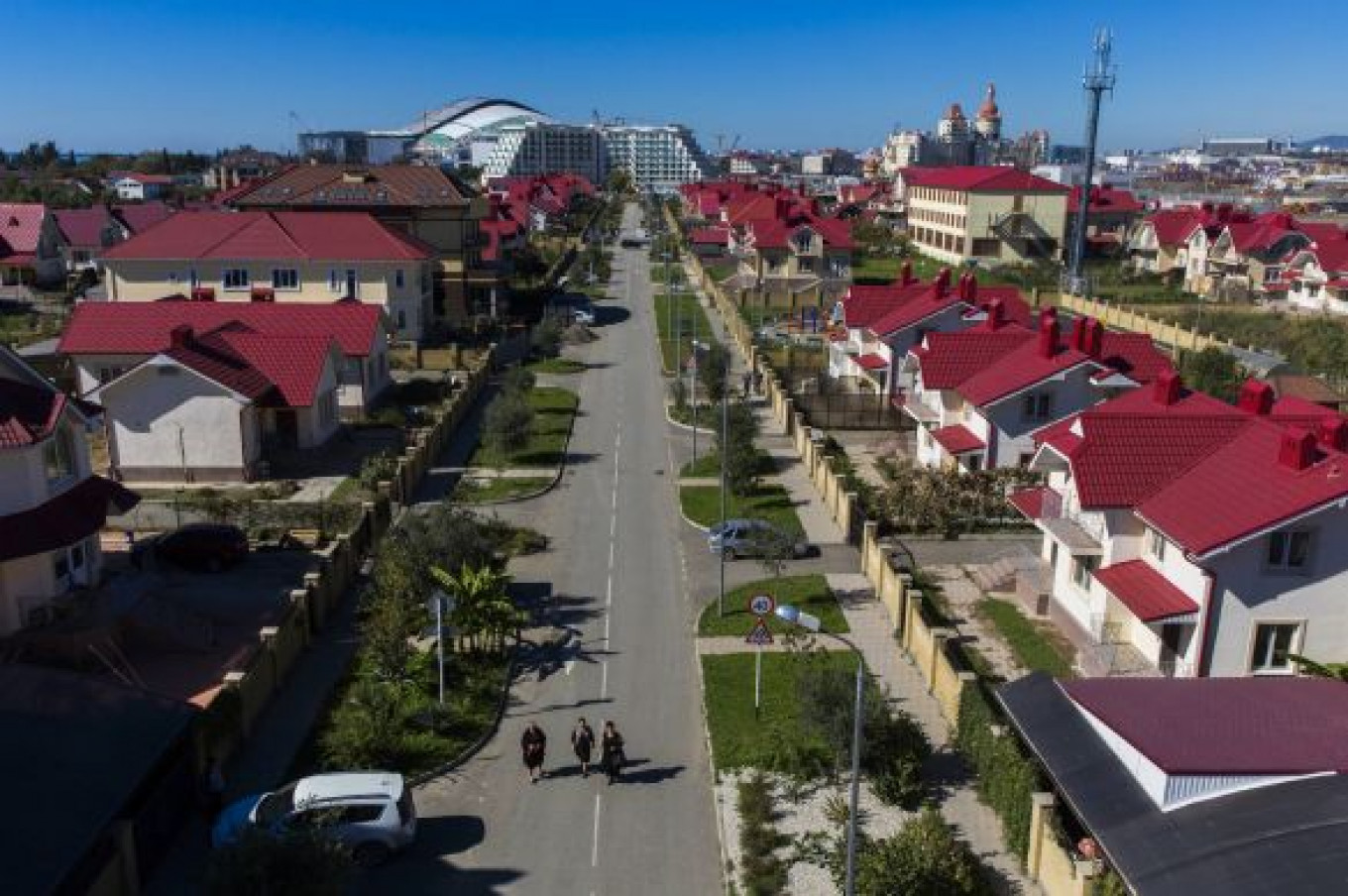
A bird's-eye view showing the recently completed neighborhood of Nekrasovka bordering the Sochi 2014 Winter Olympic Park. Residents were resettled from Imeretinskaya Bay, a former Old Believer settlement that had to make way for the coastal cluster of the Olympic Park. All that remains of the historic home of the adherents of this purist Orthodox faction is a graveyard that is now sandwiched between Olympic venues. The Old Believers and other residents of Imeretinskaya received single detached houses, varying in size according to the amount of land they used to own.
Thomas Peter / Reuters
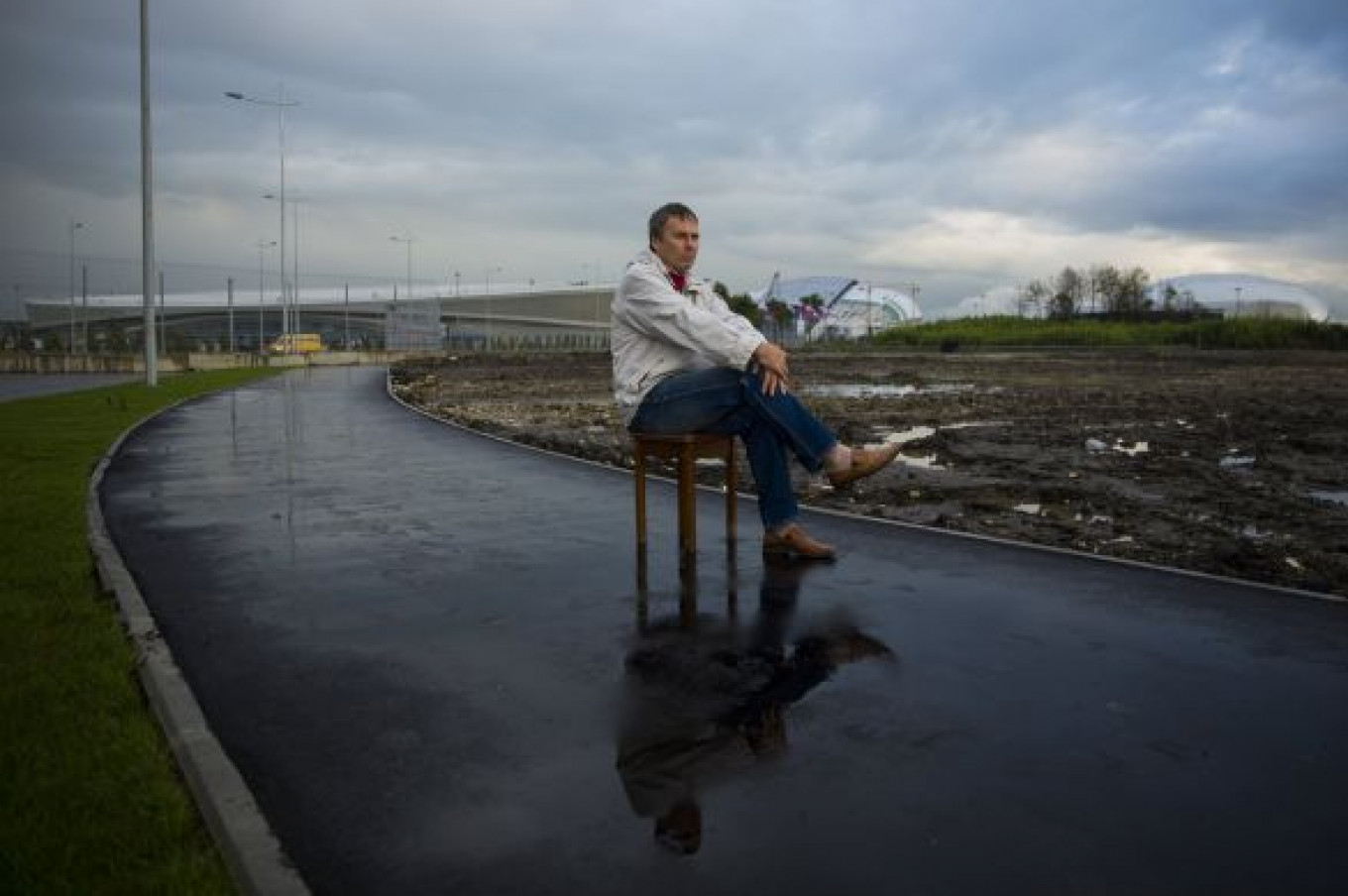
Andrei Martynov sitting on a stool, one of his few remaining pieces of furniture, near the site of his former property within the boundaries of the Olympic Park. Martynov was granted temporary shelter at a Soviet-era tourist hostel, where he shares an 8-square-meter room with his wife. Martynov says he was first deprived of his land by a real estate agent who cheated him with fake land-survey documents. During litigation, he ultimately lost his property to the state corporation responsible for building the Olympic Village in Sochi's Adler district. He said he has not received any compensation for his loss and city authorities deny registration at the hostel, rendering him legally homeless.
Thomas Peter / Reuters
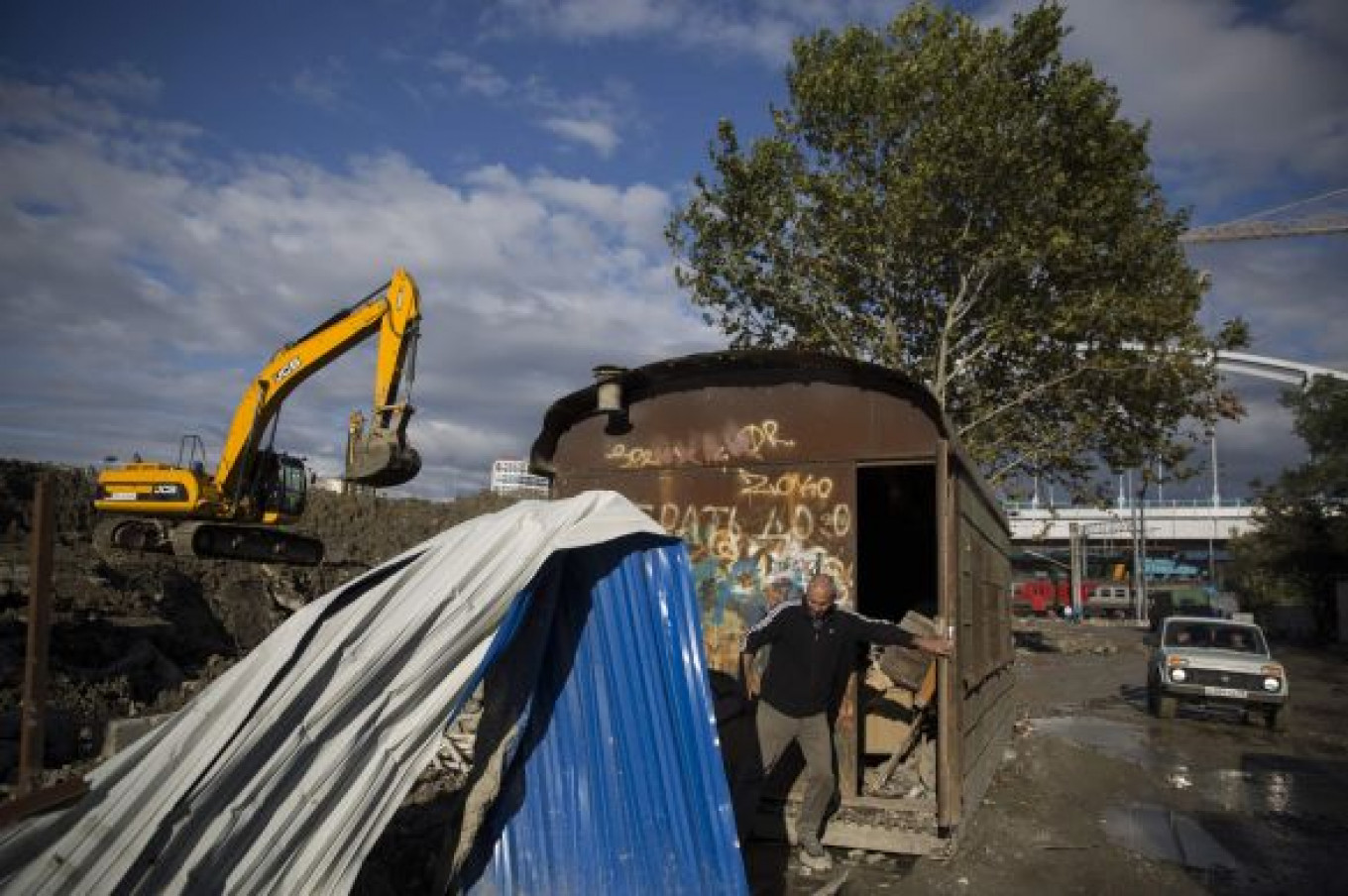
Alexei Kravets leaving the trailer where he keeps belongings he saved from destruction after being forcibly evicted from his home in Sochi. Kravets says he battled eviction for more than a year until he was forcibly evicted, his belongings thrown into the street and his house demolished in 2012. He has not received compensation and has appealed to the European Court of Human Rights.
Thomas Peter / Reuters
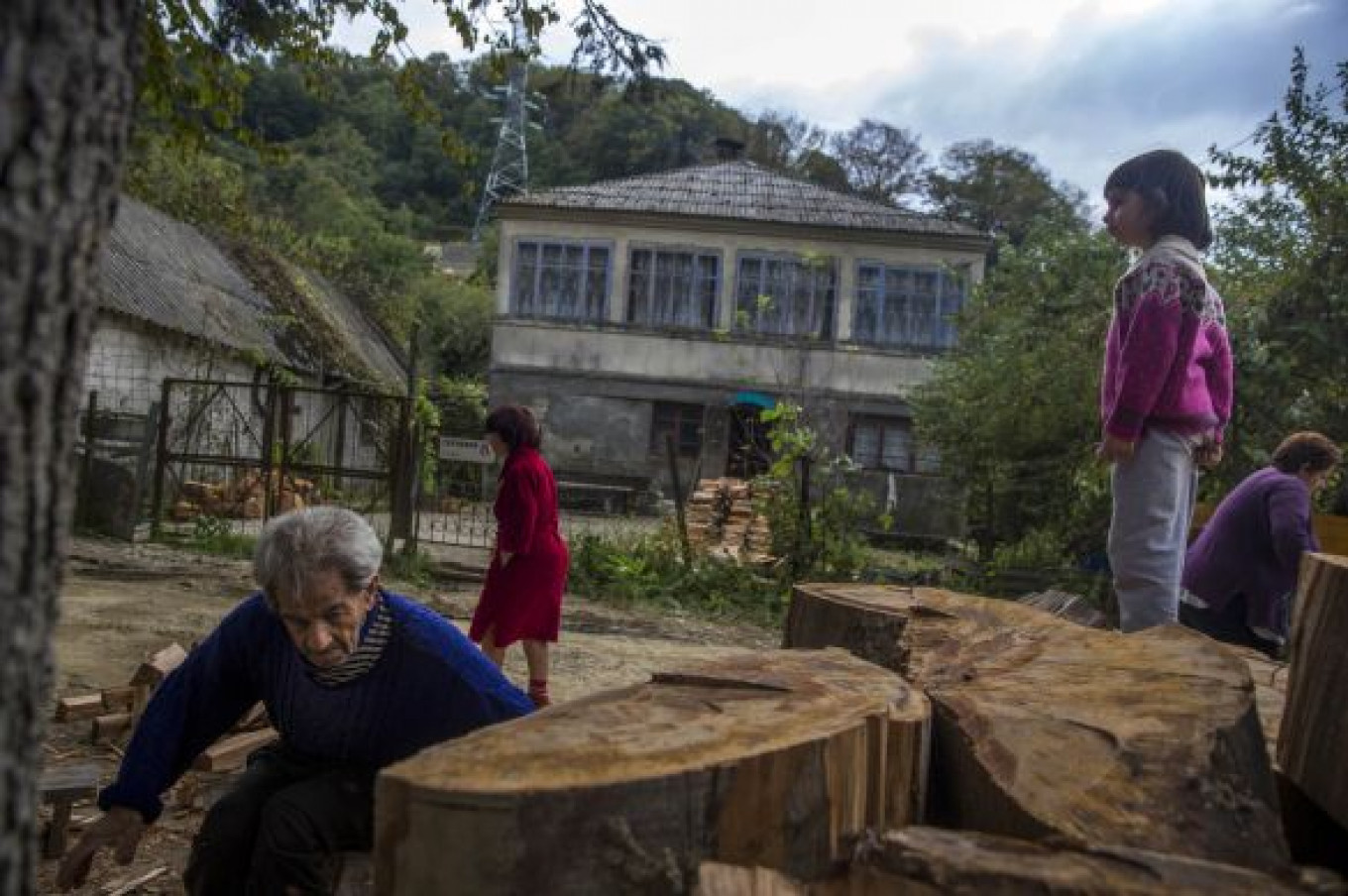
Sedrak Torosyan, 77, left, and his daughter Margarita, second left, taking a rest from cutting wood in front of their house in Sochi. Since the erection of pylons on the hill above their houses, which carry power lines supplying Olympic venues, the hillside has been gradually giving way, triggering landslides that have destroyed orchards and damaged buildings, rendering some of them uninhabitable, Ternovaya Ulitsa residents say. The Adler regional court dismissed the residents' request for compensation in 2012.
Thomas Peter / Reuters
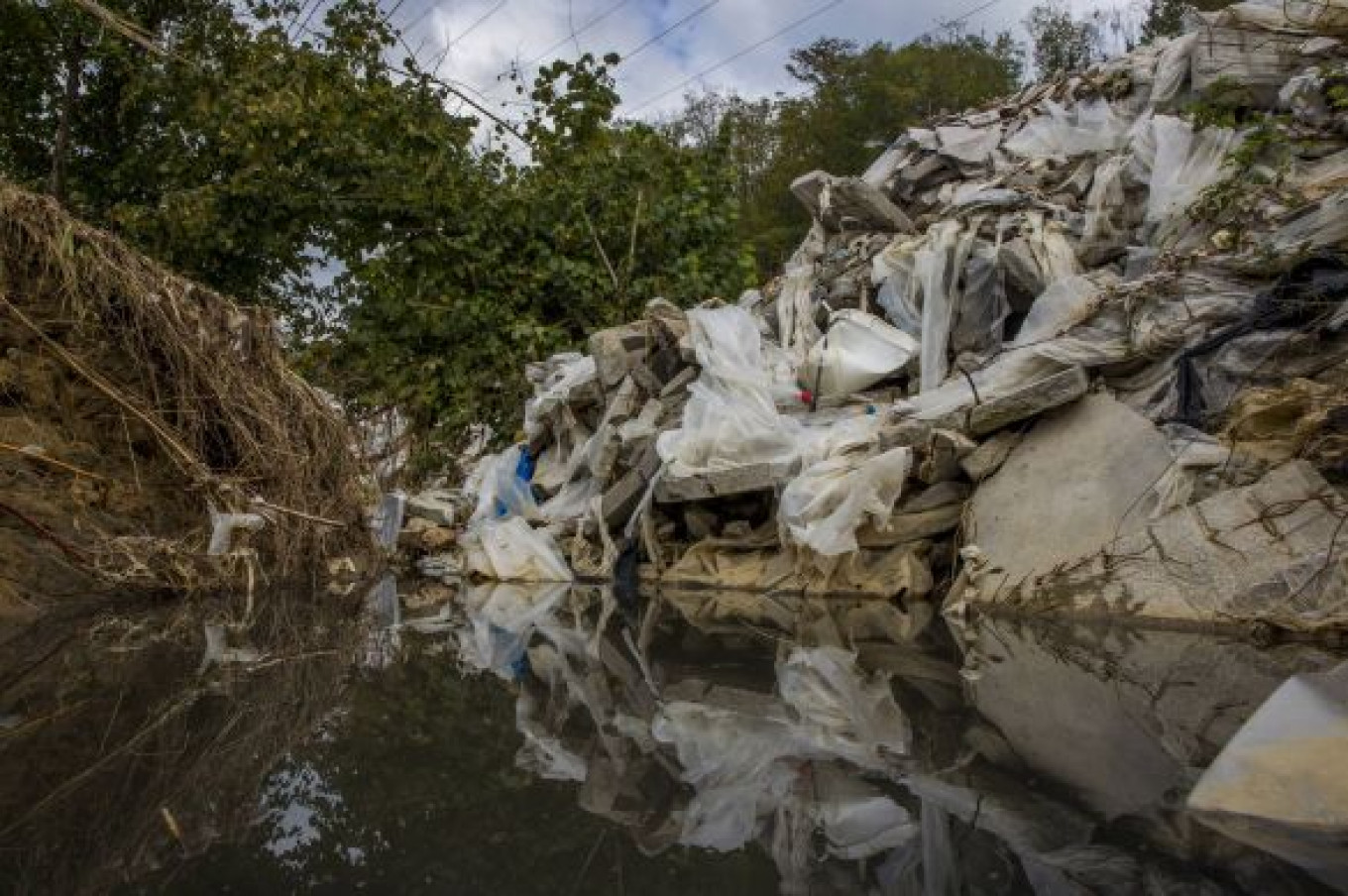
Construction waste piling up in the countryside near Ternovaya Ulitsa, which has been hit by landslides.
Thomas Peter / Reuters
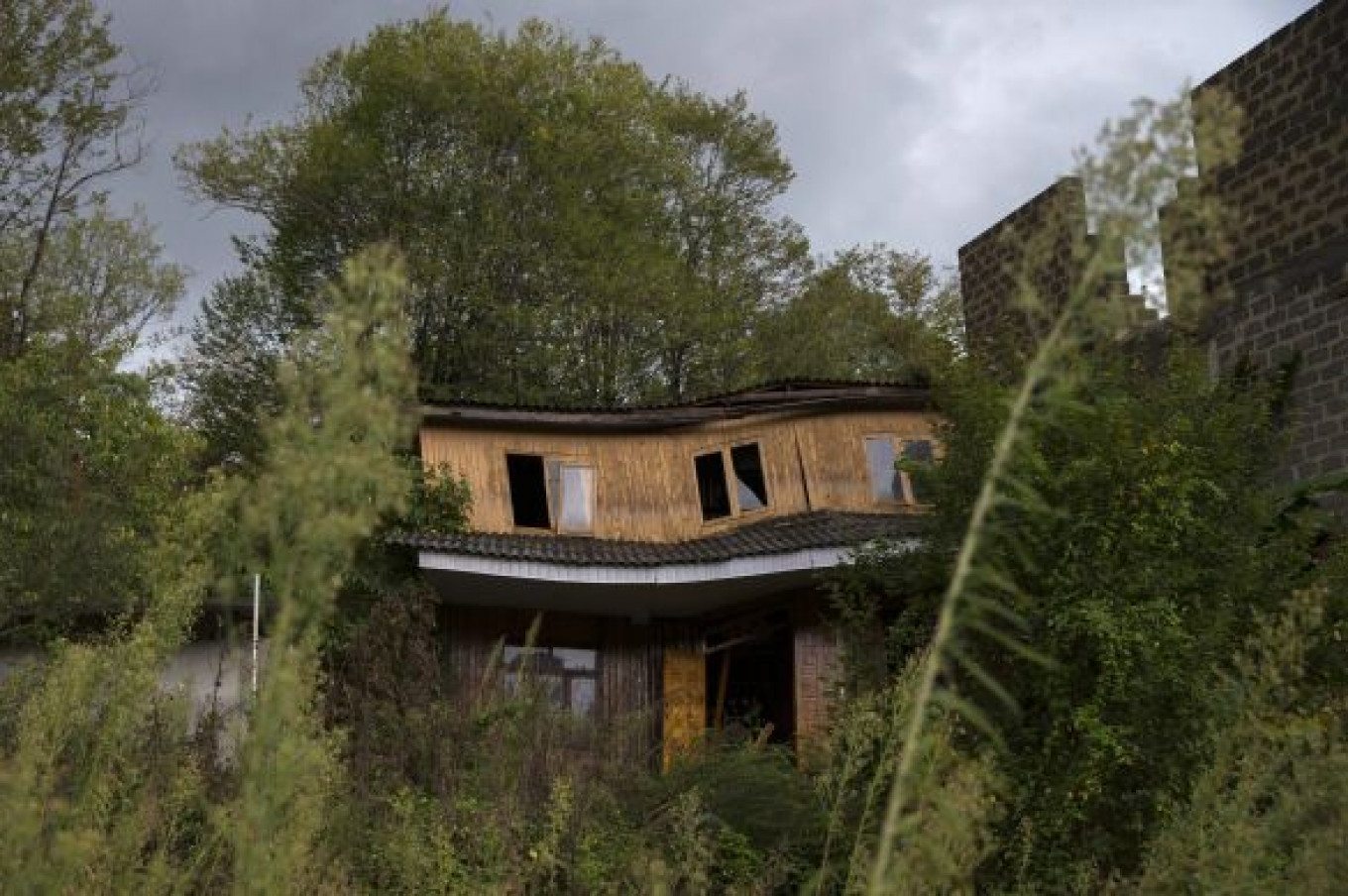
A house damaged by a landslide is seen on Bakinskaya Ulitsa in Sochi. The house at the top of the sloping street was damaged in 2010, trapping inhabitants who had to be rescued by emergency services, neighbor Tatyana Skiba says. She blames the landslide on a dump further up the hill that is used by a construction company involved in Sochi's pre-Olympic Games building boom. She says the city authorities deny any connection between the landslide and the dump.
Thomas Peter / Reuters
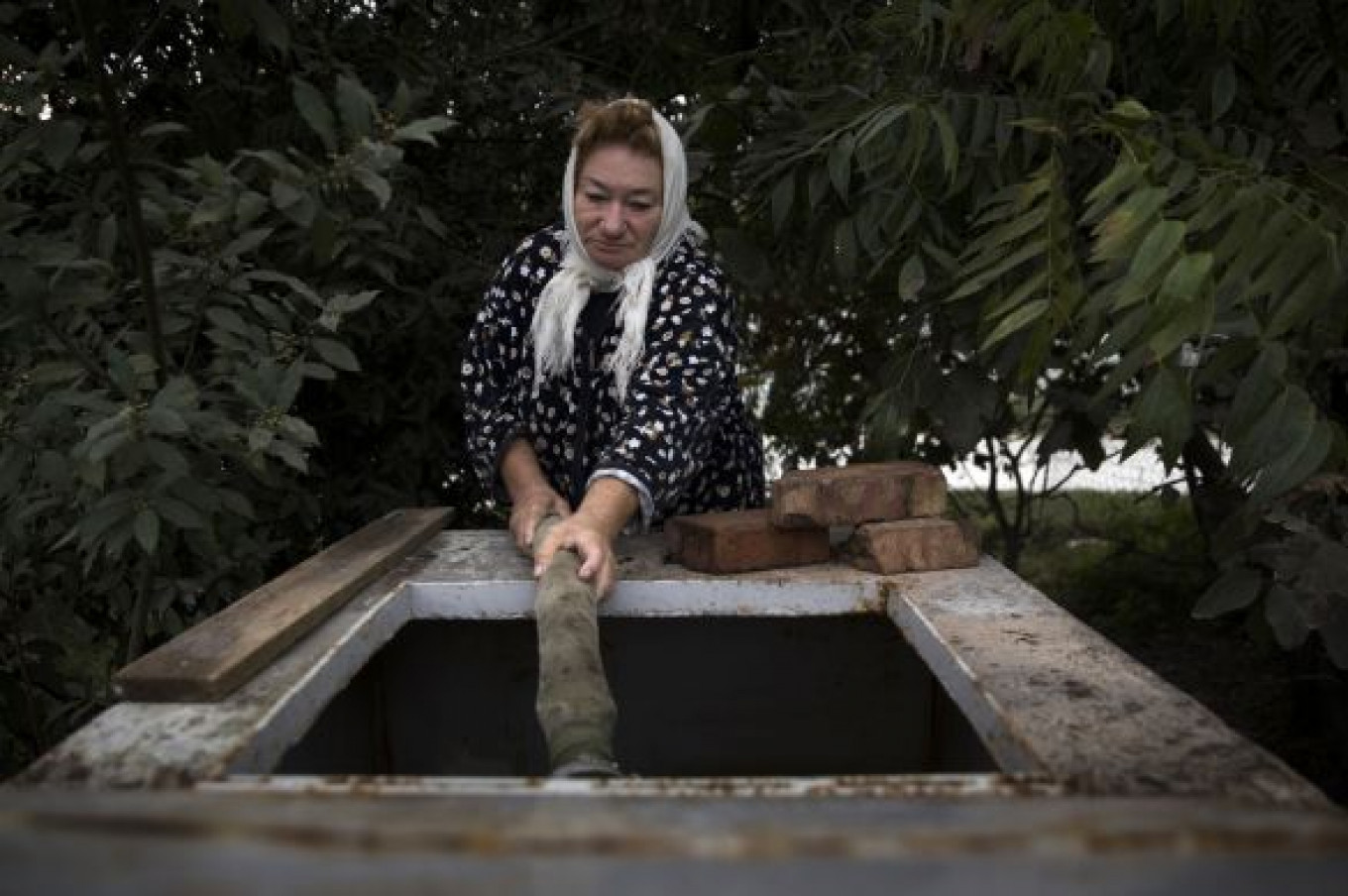
Villager Tatyana Velikaya filling up a tank with her weekly water ration in Akhshtyr, a district of Sochi. Locals say their wells have gone dry since the construction of railway and highway tunnels and the excavation of a stone quarry near the village, which produces gravel for the construction of games venues. They also say the construction of railway and highway tunnels next to their village has cut them off from public transportation, forcing them to walk a 7-kilometer diversion. "This used to be such a beautiful place. I used to love it, I still love it, but look what has become of it today," Velikaya says.
Thomas Peter / Reuters
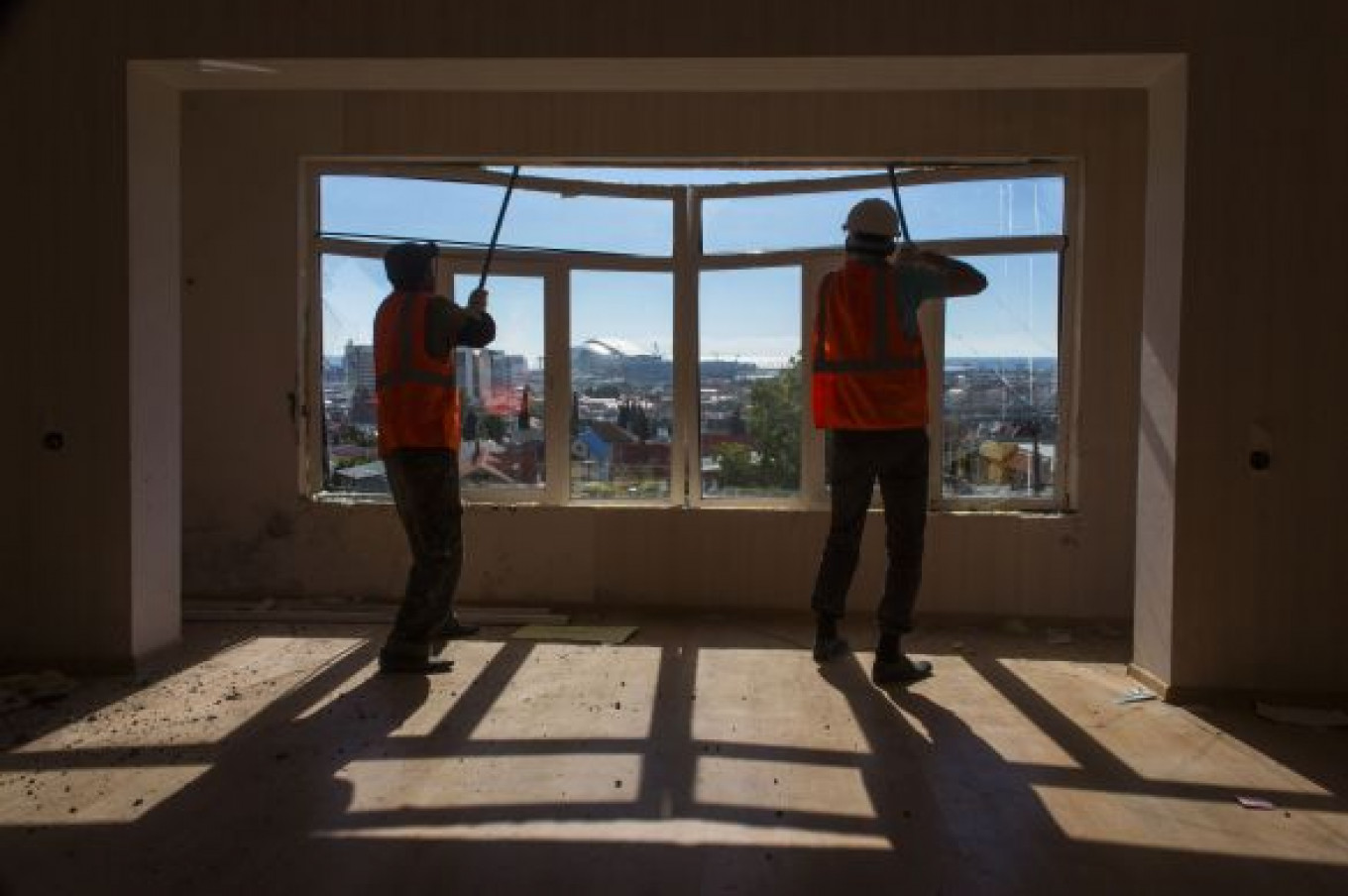
Workers removing a window in one of many illegal housing developments in Sochi.
Thomas Peter / Reuters
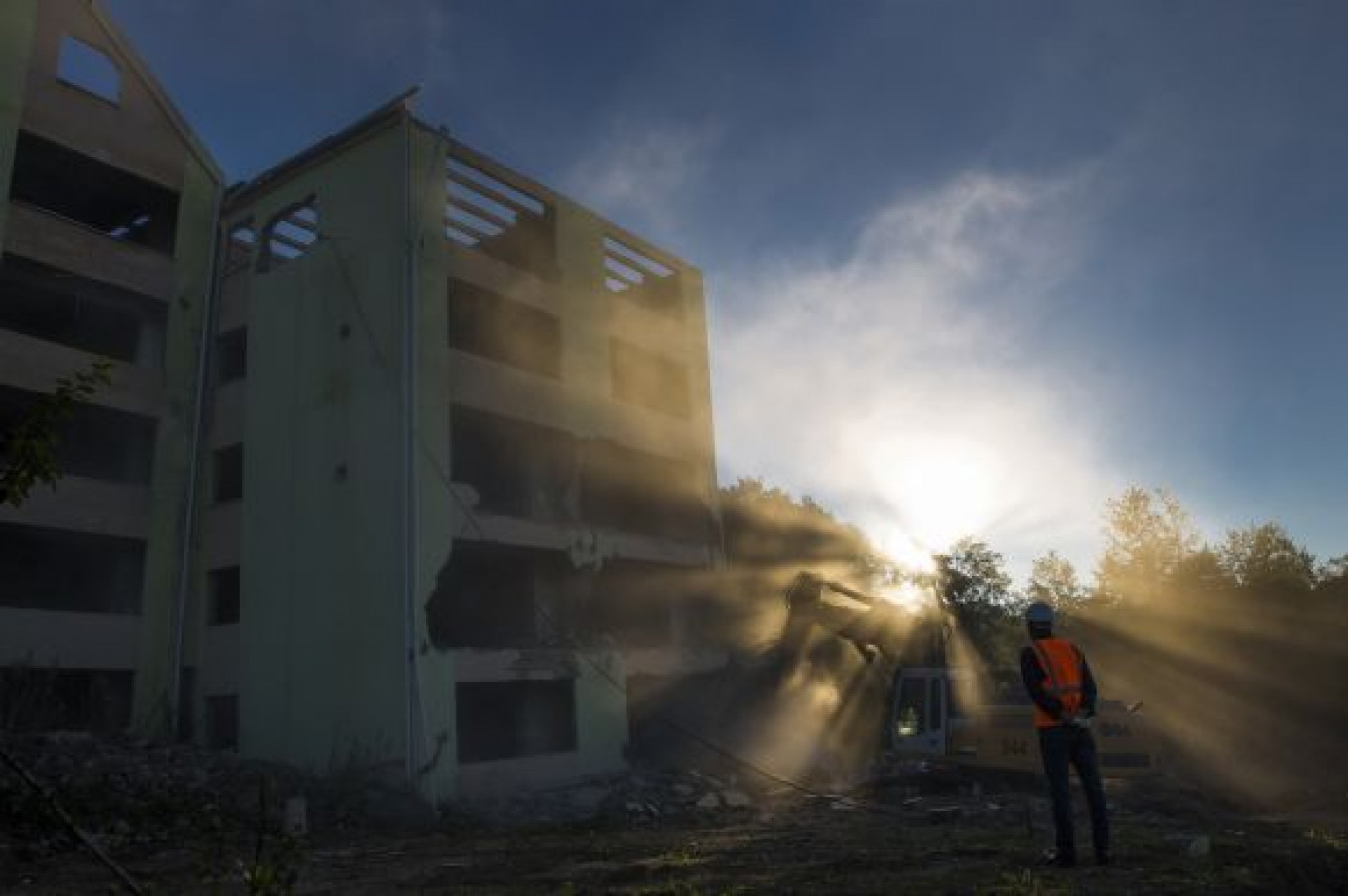
A worker watching an excavator demolish an illegal housing development in Sochi. In the shadow of official competition venues and hotels that are being built for the games, scores of illegal construction sites for apartments have sprung up all over the city, adding to the huge amount of building work already taking place there.
Thomas Peter / Reuters

